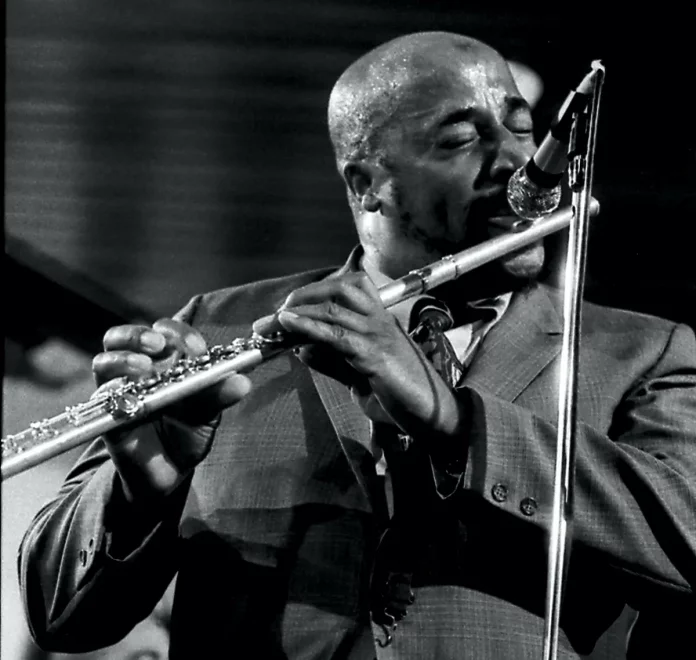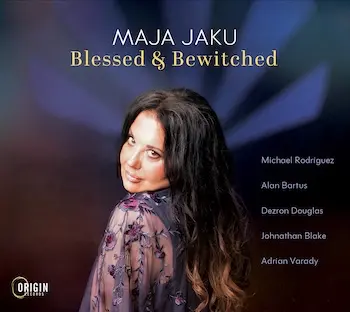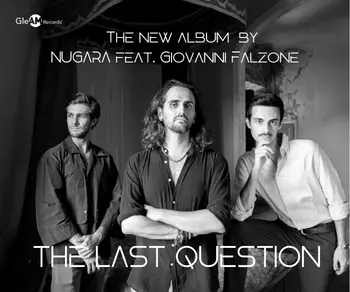Rez Abbasi Acoustic Quartet: Sound Remains (Whirlwind Recordings WR4834)
This is one of a series of acoustic guitar-led albums released by Rez Abbasi. His Natural Selection (Sunnyside, 2010) comprised a mix of original tunes and a scattering of covers such as Keith Jarrett’s Personal Mountains and Punjab by Joe Henderson. It also featured the first appearance of his acoustic quartet, also known by the acronym RAAQ. This comprised, along with Abbasi, Bill Ware on vibraphone, Stephan Crump on acoustic bass and Eric McPherson on drums. Similarly, his second acoustic album Intents and Purposes (Enja, 2015) yielded a fascinating take on electric fusion numbers by the likes of Billy Cobham, Chick Corea and Joe Zawinul.
Karachi-born, Los Angeles raised Abbasi now releases the 18th album under his own name and his fifth for Michael Janisch’s ever-burgeoning Whirlwind label. The previous one was Charm (Whirlwind, 2023), an acoustic-ish outing including sitar and cello players. Again, it features Ware, Crump and McPherson but the quartet is augmented here by master percussionist Hasan Bakr, adding tonal breadth.
Of the eight numbers here, two are non-originals. Keith Jarrett’s Questar is given a respectful and sensitive reading with Bakr’s deft percussion delicately interwoven with guitar and vibes lines. The melody to John Coltrane’s Lonnie’s Lament is played on fretless guitar sounding like the low strings on a tenor guitar, almost cello-like, rendering it all the more affecting. The opener Presence evinces a jaunty, Iberian quality with a memorable head and single-note attacks, respectively from vibraphone and guitar. But it also contains some delicacy, further encapsulating the fluidity of the playing. There’s an underlying urgency to Spin Dream, propelled by percussion and snare-rich drums. The meandering Meet The Moment is marked by Abbasi’s acoustic guitar solo. The refreshing sound of a non-electric instrument entices the listener to savour every note. The laidback bluesiness of the closer Purity is underpinned by Crump’s resonant bass figure and is juxtaposed with the lightness of Ware’s vibes.
Abbasi continues to prove here – as with his previous two RAAQ recordings – that the limpid voices of acoustic instruments can have a more powerful effect than electric ones.
Ateena: Ateena (Luova Records LUOVA0133)
The Finnish sextet Ateena is an uncompromisingly guitar and keyboard-oriented band and this eponymously titled debut vinyl album is replete with catchy tunes exemplified by Yö (Night) which was originally released as a single. The overarching mood of this all-instrumental recording is jazz, rock and pop – think Steely Dan minus the vocals. But the mood is occasionally punctuated by marginally funkier, drum-driven numbers such as Aimou and the rocky, riff-laden Hiekka. These are at odds with the slow, bluesy Ajo – reminiscent of early Fleetwood Mac instrumentals – and the stately, elegiac closer Aamu. The liquid sostenuto guitar lines on Pintti are redolent of Harvey Mandel.
Ateena benefits from two guitarists, Valtteri Vähämaa and Topi Vellonen, the latter writing most of the tunes; although it’s not clear who plays what parts, the overall effect is pleasing and works well. Other members of the group include Aimo Nuutinen on keyboards, Asko Huisman on bass guitar, Touko Ruokolainen on drums and Ville Mäkäräinen on percussion. This is definitely one for fusion fans.
Yusef Lateef: Into Something (Waxtime 772372)
According to the original liner notes to Into Something, multi-instrumentalist Yusef Lateef was recruited into Cannonball Adderley’s band on “Christmas night, 1961” but Cary Ginell’s biography of Adderley dates this recruitment as the beginning of 1962. Chronology aside, Adderley’s quintet had been transformed into a sextet, albeit temporarily. Lateef, who had already been recording albums under his own name for nearly a decade now, became the focal point for the Adderley group, bringing an exotic flavour to the line-up by virtue of his oboe, flute and tenor playing. There was a hiatus in Lateef’s own recordings whilst with Adderley. However, the last album he recorded just before the start of his Adderley tenure was Into Something, which immediately followed Eastern Sounds (Moodsville/Prestige, 1961).
Like its predecessor, Into Something again featured pianist Barry Harris, but now with Herman Wright on bass. The real bonus though was Elvin Jones on drums who sounds marginally lower in the mix than on albums by John Coltrane with whom Jones had just started recording. Perhaps this was deliberate since, like Tony Williams, Jones could have drowned out Lateef’s at times quite delicate tunes. The album, although not as out there as Eastern Sounds, does contain some very memorable tracks comprising a mixture of standards and originals. Rasheed, a hypnotic, slow 12-bar blues, is the only number featuring oboe, Lateef evincing a sinewy solo over four choruses before Harris takes over, offering laidback but engaging piano.
Now on tenor, Lateef leads the famous melody to When You’re Smiling, which again receives a relaxed treatment. The bebop-influenced, piano-less Water Pistol picks up the pace, with Jones and Wright deftly underpinning Lateef’s tenor. In this trio context Jones is heard more robustly. You’ve Changed is a sumptuous ballad with Harris back on piano. Side one concludes with the first of two bonus tracks (both featuring the same tune), an affecting ballad I Need You (aka Yusef). This one is a live version with different personnel.
Side two opens with I’ll Remember April where Lateef, now on limpid flute, is followed by some ebullient piano work from Harris. Koko’s Tune is a catchy blues, with the head imbuing a hint of both bebop and oddly, the rock and roll saxophone of the 50s. P. Bouk is a mid-paced blues, again with Lateef’s tenor in exploring mode with Jones heard more forcefully, especially on the track’s concluding fours. Side two ends with the second bonus track, this time a studio version of I Need You, again with different personnel. Whether the two bonus tracks – rendered in mono, unlike the other seven stereo numbers – are a valuable addition is debatable, but they certainly do not detract from what is undoubtedly a welcome vinyl reissue.




